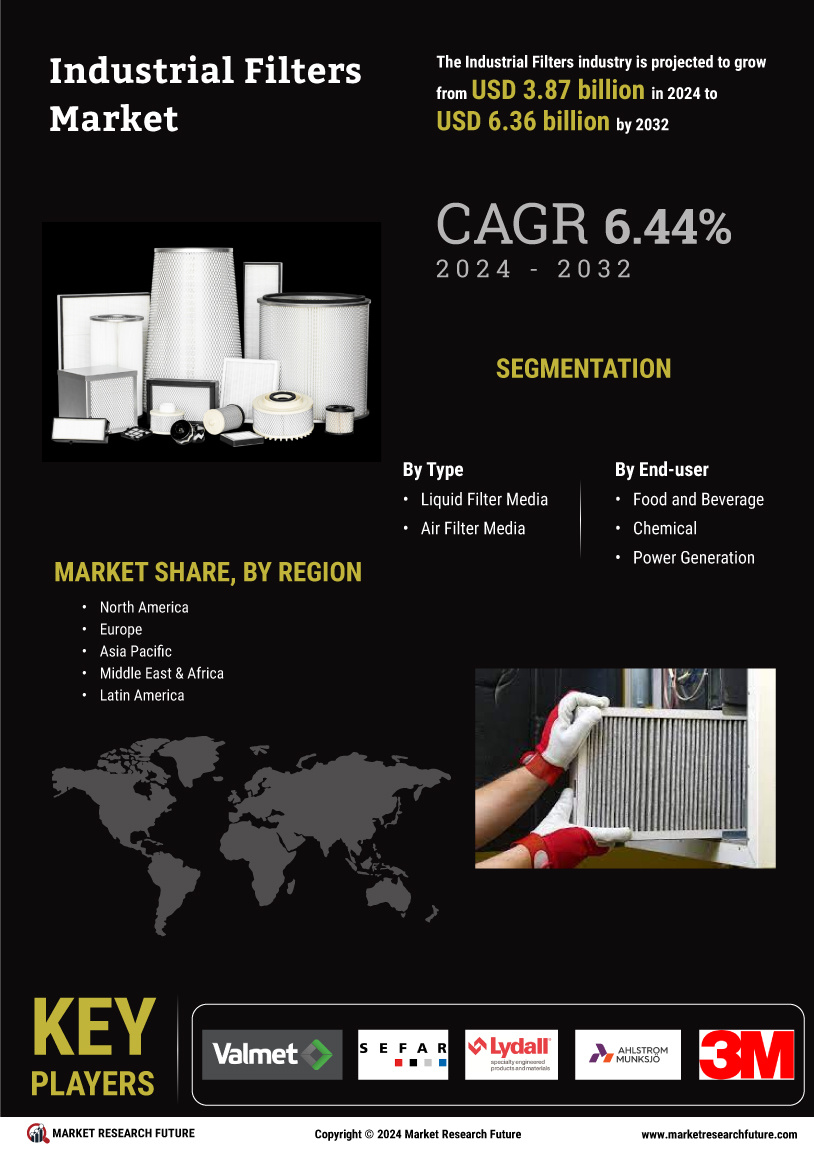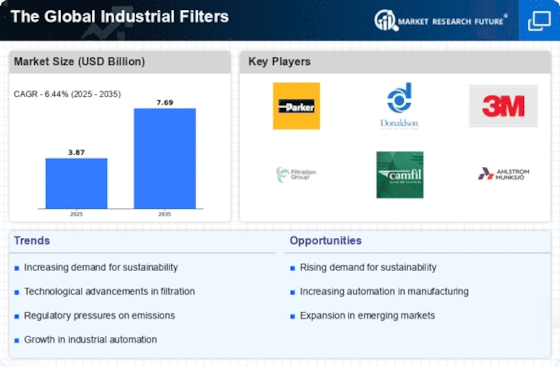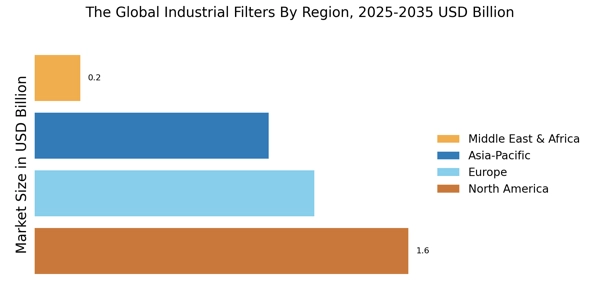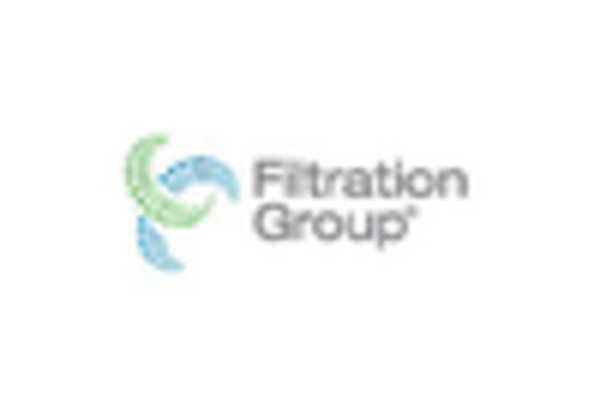Industrial Filters Market Summary
As per Market Research Future analysis, The Global Industrial Filters Market was estimated at 3.87 USD Billion in 2024. The industrial filters industry is projected to grow from 4.119 USD Billion in 2025 to 7.691 USD Billion by 2035, exhibiting a compound annual growth rate (CAGR) of 6.44% during the forecast period 2025 - 2035
Key Market Trends & Highlights
The Global Industrial Filters Market is poised for robust growth driven by sustainability and technological advancements.
- North America remains the largest market for industrial filters, driven by stringent environmental regulations.
- The Asia-Pacific region is emerging as the fastest-growing market, fueled by rapid industrialization and urbanization.
- Liquid filter media continues to dominate the market, while air filter media is experiencing the fastest growth due to increasing air quality concerns.
- Key market drivers include rising environmental regulations and growing awareness of health and safety, which are shaping demand across various sectors.
Market Size & Forecast
| 2024 Market Size | 3.87 (USD Billion) |
| 2035 Market Size | 7.691 (USD Billion) |
| CAGR (2025 - 2035) | 6.44% |
Major Players
Parker Hannifin (US), Donaldson Company (US), 3M (US), Filtration Group (US), Camfil (SE), Ahlstrom-Munksjö (FI), Mann+Hummel (DE), Eaton Corporation (US), Hydac International (DE), Sogefi Group (IT)

















